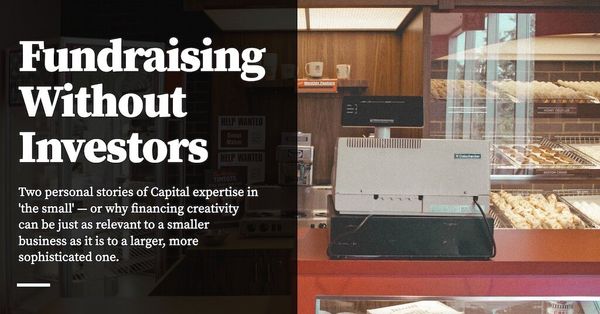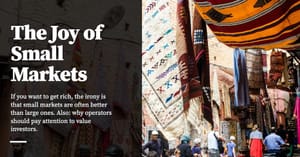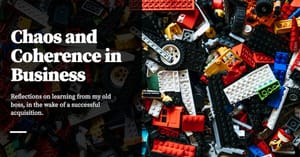Two personal stories of capital expertise 'in the small' — or why financing creativity can be just as important to smaller businesses, as it is in larger, more sophisticated ones.
This is Part 3 in a series on the expertise of capital in business. You may read the previous part here.
Many of the stories we’ll examine in the Capital series will focus on business ‘in the large’ — stories like Dell, fighting courtroom battles against intransigent activist investors or executing complicated financial moves in liquid capital markets. But today’s essay is different. I want to tell two stories about Capital expertise in the small. Both stories are personal, but help explain why I found DiBello’s triad model of business expertise so compelling when I first discovered it.
I’ve not told them before because both stories involved competitive advantages that we used in my previous company. But I think enough time has passed now (and things have changed sufficiently) that it’s ok to tell these stories today.
Generic business advice is often generic because you can’t ground it in the gritty details of a real world story. So — as with most useful business stories, the set up for this one is a little involved. But I think you’ll see why this is relevant in a short bit.
A Distorted Market
Over the course of late 2014 to the end of 2017, I helped my old boss bootstrap a Point of Sales company from nothing to S$4.5 million in annual revenue. I’ve referenced this story in multiple essays on this blog over the years. What I never explained was how we did it.
Let’s back up a little. When I first joined my boss’s company, we didn’t make Point of Sales systems. We didn’t make anything, in fact; no: we were a dev shop. We charged clients in Singapore slightly below market rates for iOS and Android apps, and we did that because we could afford to — our software engineers were, after all, based out of Vietnam. I was hired to help my boss shift the company from consulting to product.
I failed. That I failed isn’t really a surprise — as anyone who’s attempted should know, trying to switch from services to product is a terribly difficult thing to do. There are nearly no overlap in skills. We built three ‘products’ in three months — all of which got little to no traction — and then we ran out of buffer money. We switched back to app development to keep the lights on.
Originally published , last updated .
This article is part of the Capital topic cluster, which belongs to the Business Expertise Triad. Read more from this topic here→





